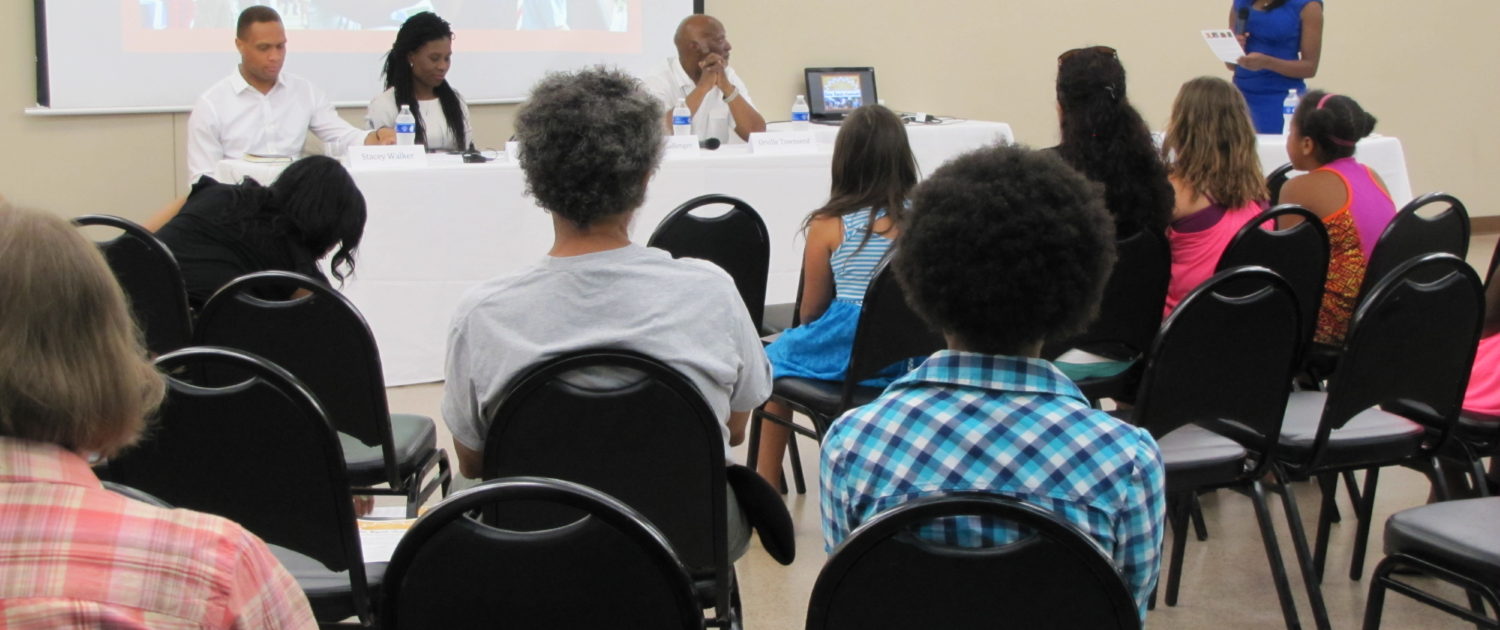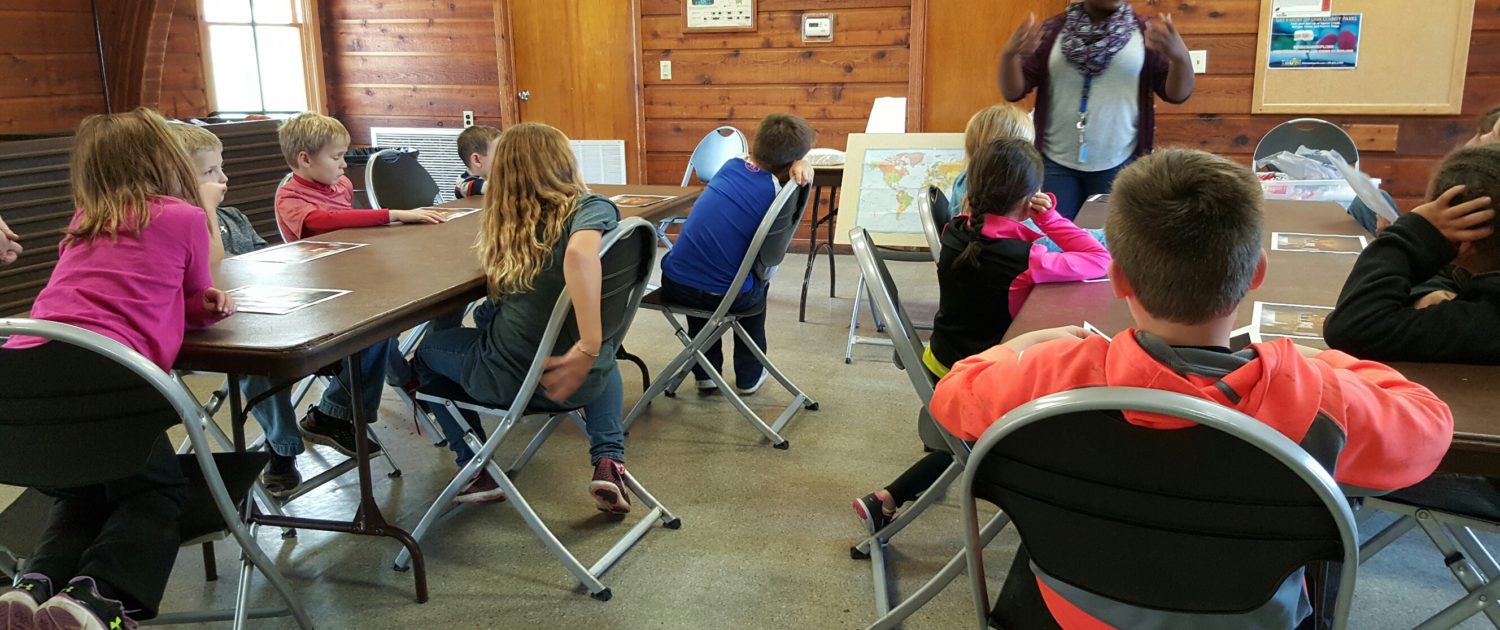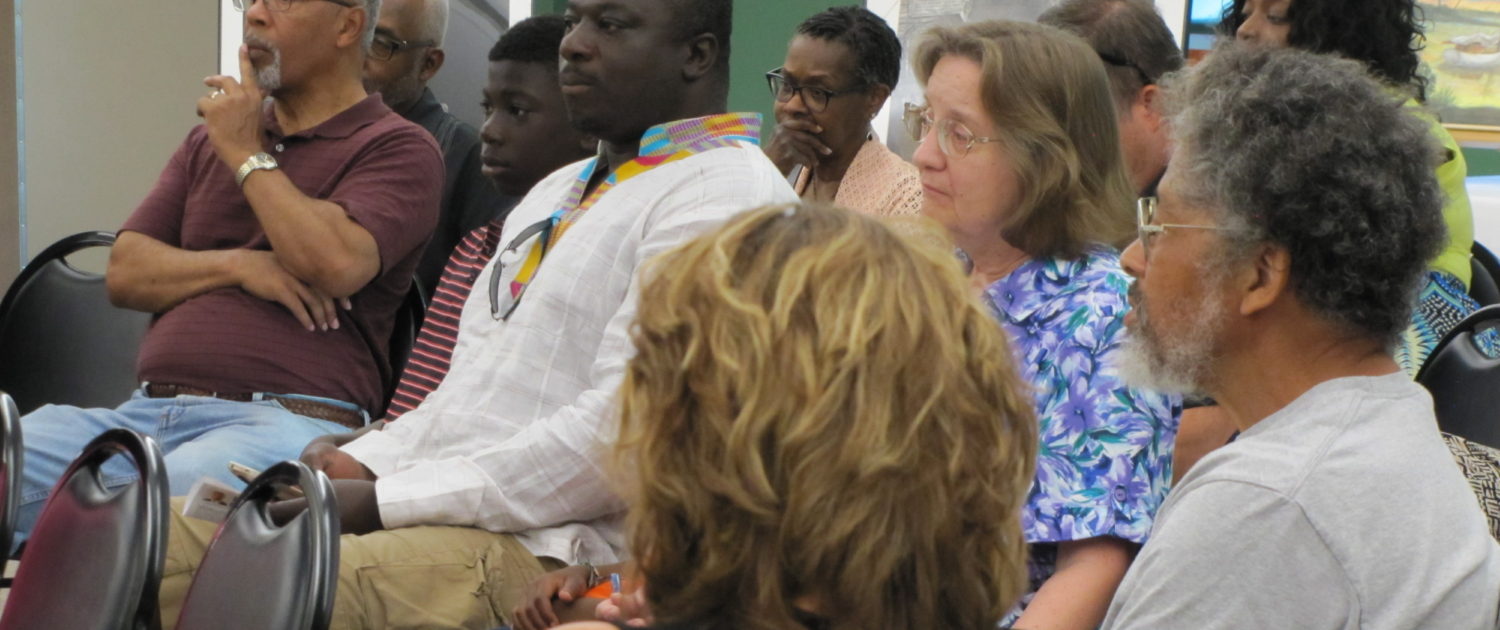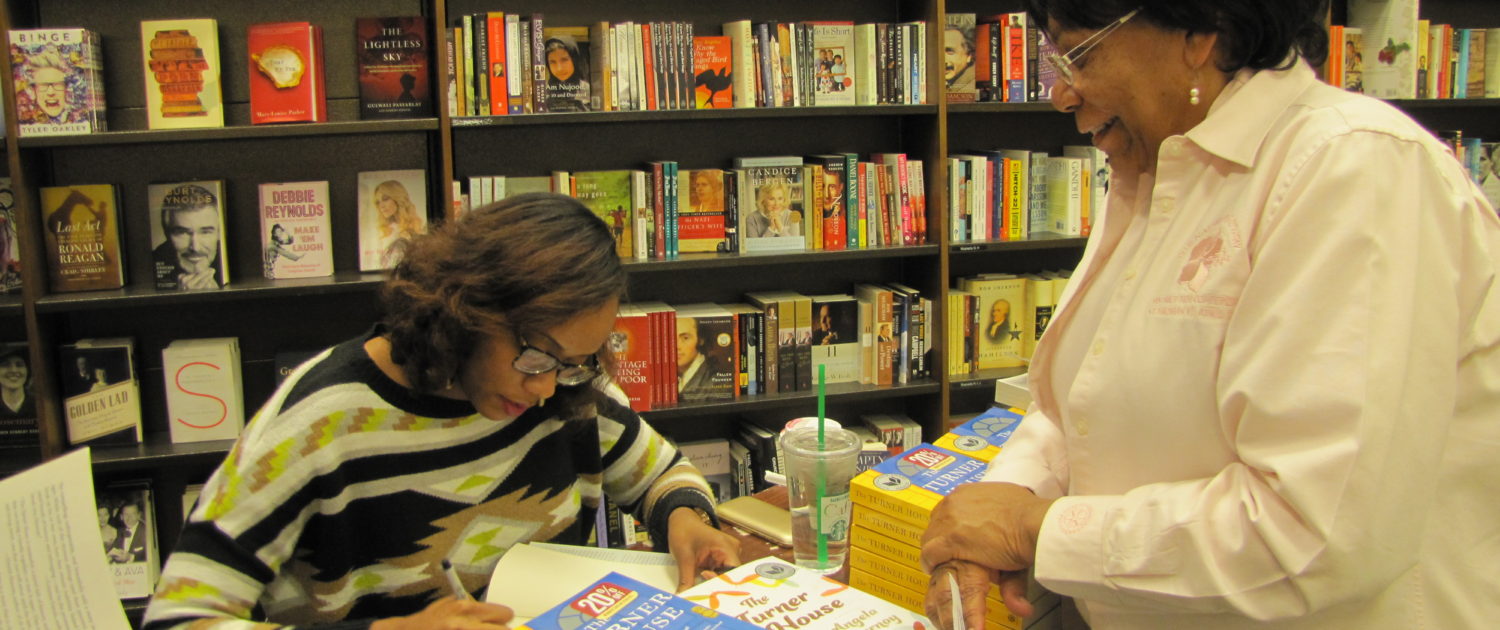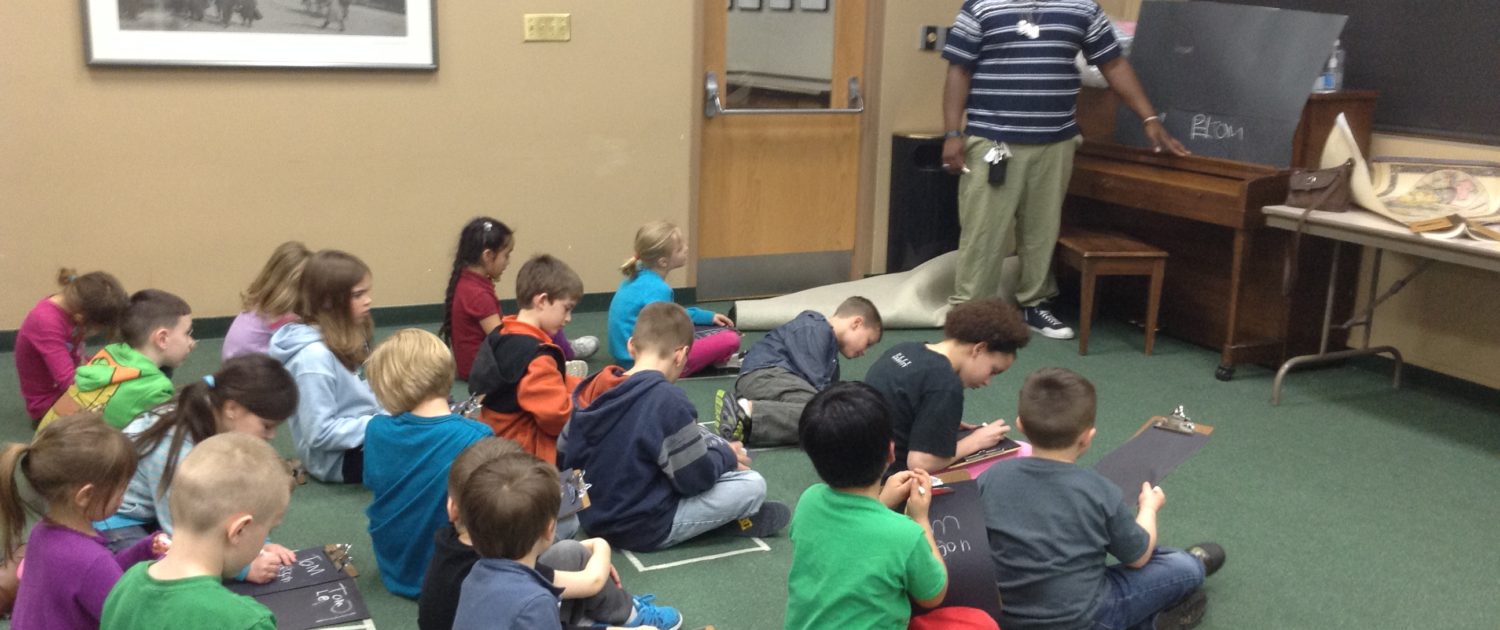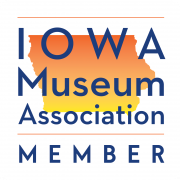The AAMI offers a wide variety of programs and events year-round. To learn about our upcoming public programming, visit our Events Calendar.
Schedule Your Own Presentation:
Our programs are ideal for community meetings, work events, or educational exploration. A member of our staff can meet your group in person at the Museum, at your location, or online.
Our programs cover different aspects of Black history and the history of Iowa, with our complete offerings provided below. In addition to the presentations designed for adult audiences, we also offer hands-on youth workshops, designed for preK-2nd grade, and 3rd-8th graders. Explore a full list of programs below.
Programs run about 30-45 minutes with additional time for questions. Program fees vary by organization type, ranging between $100 to $200 dollars. Additional fees may be included for travel outside of the Cedar Rapids area. Rates are subject to change with museum discretion.
Presentation Topics for Adult Groups:
Behind the Beat
This presentation uses music to explore African American history from early American colonies to the present. Music serves as a great tool to explore the evolution of African American culture, and to trace history’s impacts to the present day. From spirituals to hip hop, to understand history, you just have to look Behind the Beat!
(Host location must provide speakers/sound equipment for this presentation.)
The Des Moines Black Panther Party
While the Black Panther Party rose to fame in cities like Oakland and Chicago, Iowa was home to its very own branch as well. Des Moines serves as a great example of the long struggle for racial justice that led to the growth of the Black Panther Party and the Black Power movement. Join the African American Museum of Iowa as we explore myths and facts around Black Power, how the Des Moines Black Panther Party worked with education reform and food access, and the ways they changed life for Black Iowans.
Endless Possibilities: Iowa’s African American History
Did you know that Iowa was the first state in the country to integrate its public school system, and that it did so in 1868? This and so much more is part of Iowa’s wealth of African American history! From York, the first African American to enter Iowa and member of the Lewis and Clark expedition, and into the present day, this presentation explores how Black history is Iowa’s history.
First in Flight: The Tuskegee Airmen
The Tuskegee Airmen were the Black heroes of the skies during World War II and included some of the most decorated fliers of their time. Discover the stories of the Airmen, including 13 Iowans, and learn about how these brave soldiers fought for freedom abroad and equality at home.
George Washington Carver
It’s no secret that Iowa loves farmers– and one of the most influential minds of agriculture has roots here, too! Explore how George Washington Carver’s incredible work on peanuts and other crops during his time at Iowa State University helped shape farming around the world, as well as how his work fit into other movements working for racial equality and how Black agriculture looks today.
Juneteenth and Emancipation
On June 19, 1865, Union Soldiers arrived in Galveston, Texas and told the last remaining group of enslaved people that they were free. Juneteenth has been celebrated as its own independence day for years in Black communities, commemorated with festivals and parades. Join us as we explore the impact of June 19 after the Civil War and the ways Juneteenth is celebrated today.
Iowa Civil Rights
As the first state to integrate its public school system, Iowa holds a unique place in the history of civil rights. This program explores how Black Iowans like the Clark family, Viola Gibson, and many more have worked for access to equal education, recreation, and representation.
Mapping Exclusion: Redlining in Iowa
Redlining is the systematic denial of various services by federal and local government agencies and the private sector to residents of specific neighborhoods. Black populations in seven Iowa cities– Cedar Rapids, Council Bluffs, Sioux City, Dubuque, Davenport, Des Moines, and Waterloo– were subject to redlined mapping. By understanding the history of redlining, we can see how these policies impact Iowans today.
More than Just a Game
Iowa’s athletes have long impacted their teams, communities, and the sports they played; but African Americans did so while facing off against more than just the opposing team. Uncover the stories of Iowa’s Black athletes fighting on and off the field, and the impacts they had on both their sports and their communities.
A Black Women’s History of Iowa
From the bravery of Underground Railroad conductor Charlotta Pylers to the tenacity of Edna Griffin, explore how African American women in Iowa have shaped our state’s education and voting systems.
Unconditional Loyalty
Discover the proud history of African American service people in the United States military from the Revolutionary War to the present. Topics include African American Iowans in the Civil War, the Buffalo Soldiers, the Tuskegee Airmen of World War II, desegregation of the armed forces, and many more.
Wonders of Buxton
Referred to as a “utopia” by the majority of the town’s residents, African American and white Iowans lived and worked in a desegregated mining town at the turn of the century. Step into the YMCAs, visit the elementary schools, and meet some of Buxton’s important residents, including the first African American to graduate from The University of Iowa Medical School.
Hands-On Youth Workshop Topics:
Schedule a hands-on workshop for your school, child care center, church, library or other community location. Count on us for an engaging, age-appropriate lesson covering local African American history and culture.
On-site workshops MUST be part of an exhibit tour (guided or self-guided) and are an additional $1 per student.
Learning Safari (PreK–Grade 2)
Each Learning Safari program is 30 minutes. It includes a book or story and hands-on activity.
Celebrating Kwanzaa
Learn about the African American celebration of family and togetherness, Kwanzaa! Learn a bit of Swahili, practice counting and colors, and create decorative items.
Martin’s Big Words
Who was Dr. King? Why do people today still think his words are so important? Work together to create a project to keep Dr. King’s dream alive while learning cooperation and service.
Rainbow of Faces
Discuss multiculturalism and diversity through food. Our story compares children’s skin colors to caramel, peaches and espresso to prepare us for making a self-portrait of our own.
Spring Planting with Carver
George Washington Carver loved plants! Learn about Carver and plant seeds to grow at home!
Superheroes of Science
Learn about three African American scientists who made life better for everyone, and then create a hero’s collage that shows what makes a superhero.
Student Workshops (Grades 3–8)
Dig into African American history and culture with workshops that can be adapted for students in grades three through eight. Students will have opportunities to write, think, answer questions, and make connections.
Behind the Beat
Explore African American history through music, from the African beats brought to the colonies during slavery, to spirituals used to communicate on the plantation, to the jazz of the Harlem Renaissance, to the popular music of the Civil Rights movement.
Dr. Carver’s Lab
George Washington Carver considered himself a “cookstove chemist,” using household materials to complete most of his experiments. Hear about Dr. Carver’s accomplishments, and then assist with some cookstove experiments of your own.
Iowa’s Underground Railroad
You won’t find Harriet Tubman in this workshop. It’s all about Iowa’s Underground Railroad. Learn common Underground Railroad codes and discover how to navigate using the stars as you learn about those that made a daring escape from slavery.
Painting Like a Pro
Art and science are two sides of the same coin. Learn about scientists like George Washington Carver and Percy Julian who dabbled in paint manufacturing, check out various African American painters and sculptors, and make a small artistic creation of your own.
Superheros of Science
African Americans have been inventing and innovating in a variety of fields, including science and medicine. Get to know three amazing inventors, innovators and scientists and the impact of their work.

